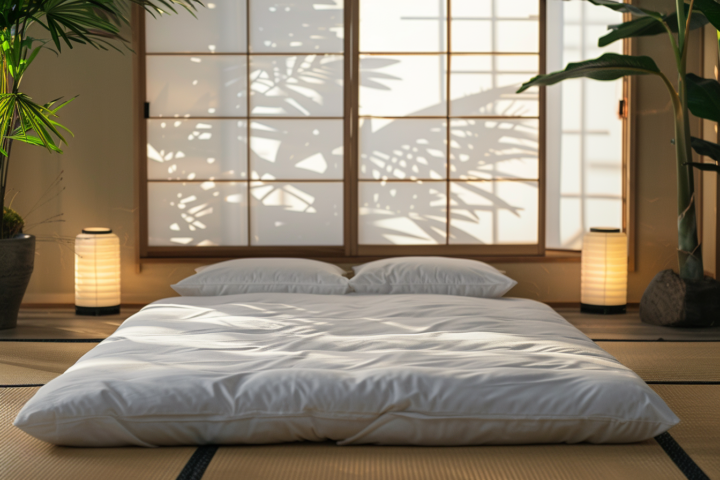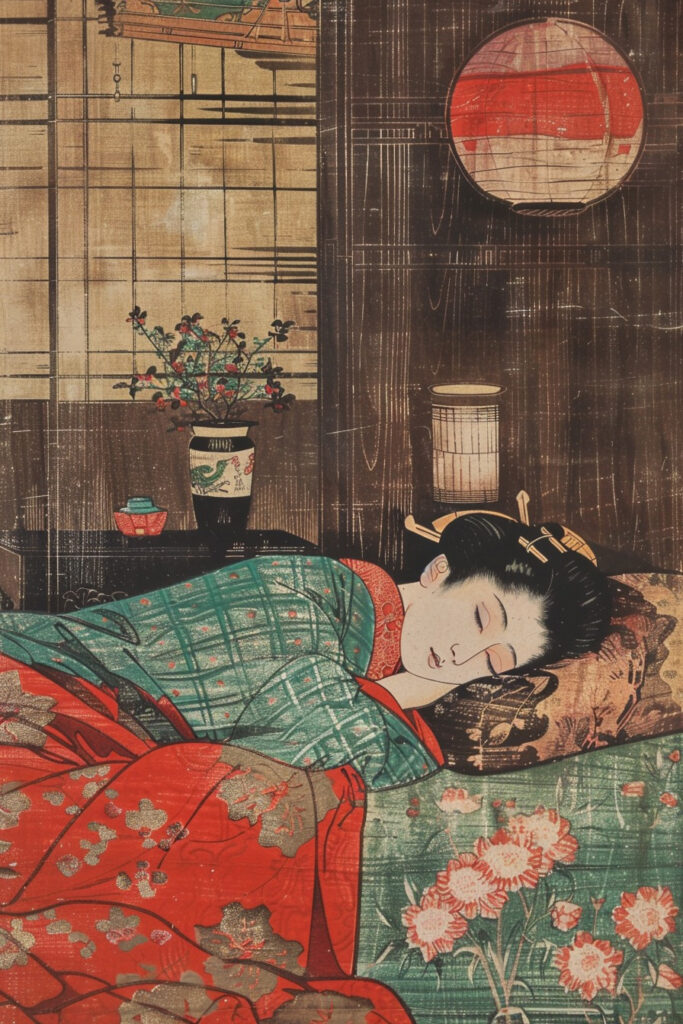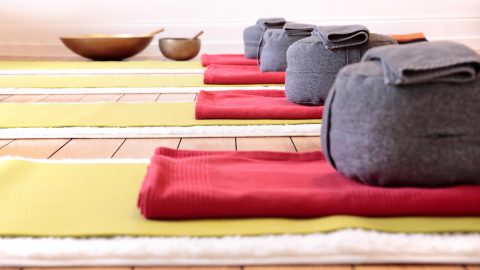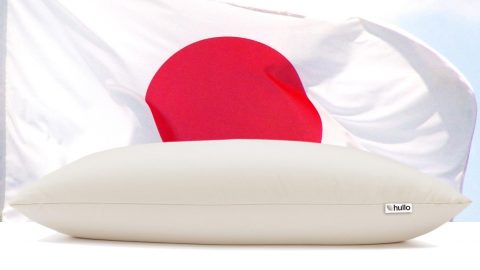
There is a striking cultural divide between East and West where sleeping habits are concerned. We in the West are accustomed to beds raised on frames topped with soft, thick mattresses. Conversely, the Japanese tradition embraces a more grounded approach to sleep, literally, with firm mattresses placed directly on the floor.

Futon: Traditional Japanese Bed Benefits
A traditional Japanese bed is commonly referred to as a futon. Futons are firm mattresses designed to be laid on the floor and are paired with:
- sobakawa or buckwheat pillows for neck and head support, and
- tatami mats that give another layer of support and promote airflow (preventing mold). They’re sort of like carpets.
1. Versatile and Economical Comfort
Their use dates back to the 17th century, when Japanese homes needed to be versatile. With space at a premium, rooms served various purposes by day and night, necessitating furniture that was as easy to stow away as it was functional. The futon, lightweight and easily moved, emerged as an elegant solution to these space challenges. It was also affordable, making it a popular choice across social strata.
2. Cool Rest
The science is pretty simple: warm air rises. Thus sleeping on the floor will help to keep you comfortably cool all night long as the warm air in your bedroom rises to the ceiling.
3. Enhanced Sleep Posture (Supposedly)
A soft mattress may cause your spine to misalign, potentially resulting in back pain and other problems. It’s true. Many modern mattresses can be excessively soft, causing them to dip in the center. This lack of support for the lower back forces it to bear our weight all night.
Conversely, a firm surface, such as a futon on the floor, supports your spine in a neutral alignment, contributing to better posture overall (and theoretically less discomfort)
Despite the benefits of sleeping on the floor some studies show that a mattress that is too firm can cause discomfort! So which is it? Is sleeping on the floor good for you or not?
Comfort is subjective.
Some people sleep best on softer surfaces while others prefer firmer ones. Most sleep experts agree that mattress firmness is a personal choice. There is no right mattress for everyone. Thus most manufacturers produce a variety of mattresses with varying firmness.
In exploring the history of Japanese sleep hygiene, we can see how our cultural backdrop shapes our perception of comfort. The stark differences in mattress design between eastern and western cultures illustrates that the way we sleep is deeply influenced by the conventions and traditions of society.
So, why do Japanese people sleep on the floor? It’s all about blending tradition, practicality and comfort.
The use of futons on tatami mats isn’t just a nod to cultural heritage; it’s a smart, space-saving choice that can be surprisingly comfy. Plus, it’s a great way to keep things simple and minimalist in the bedroom. This sleeping style, deeply rooted in Japanese culture, offers a unique approach to rest that contrasts with the plush beds we’re accustomed to.
Good night!
Or in Japanese, おやすみ (Oyasumi)
Learn More About Japanese Comfort Traditions…
In addition to sleeping on the floor, it’s common in Japan for people to sit on the floor for meals, tea ceremonies, and other activities. A popular seating option is the floor pillow. These floor pillows are frequently filled with buckwheat hulls, providing firm, comfortable support that molds to the body’s shape. The use of buckwheat pillows for both sleeping and sitting is rooted in their ability to promote comfort and natural posture, making them a versatile and ergonomic option.



